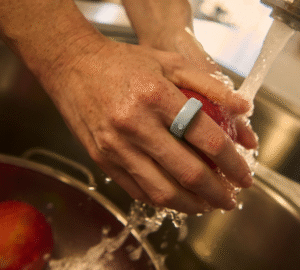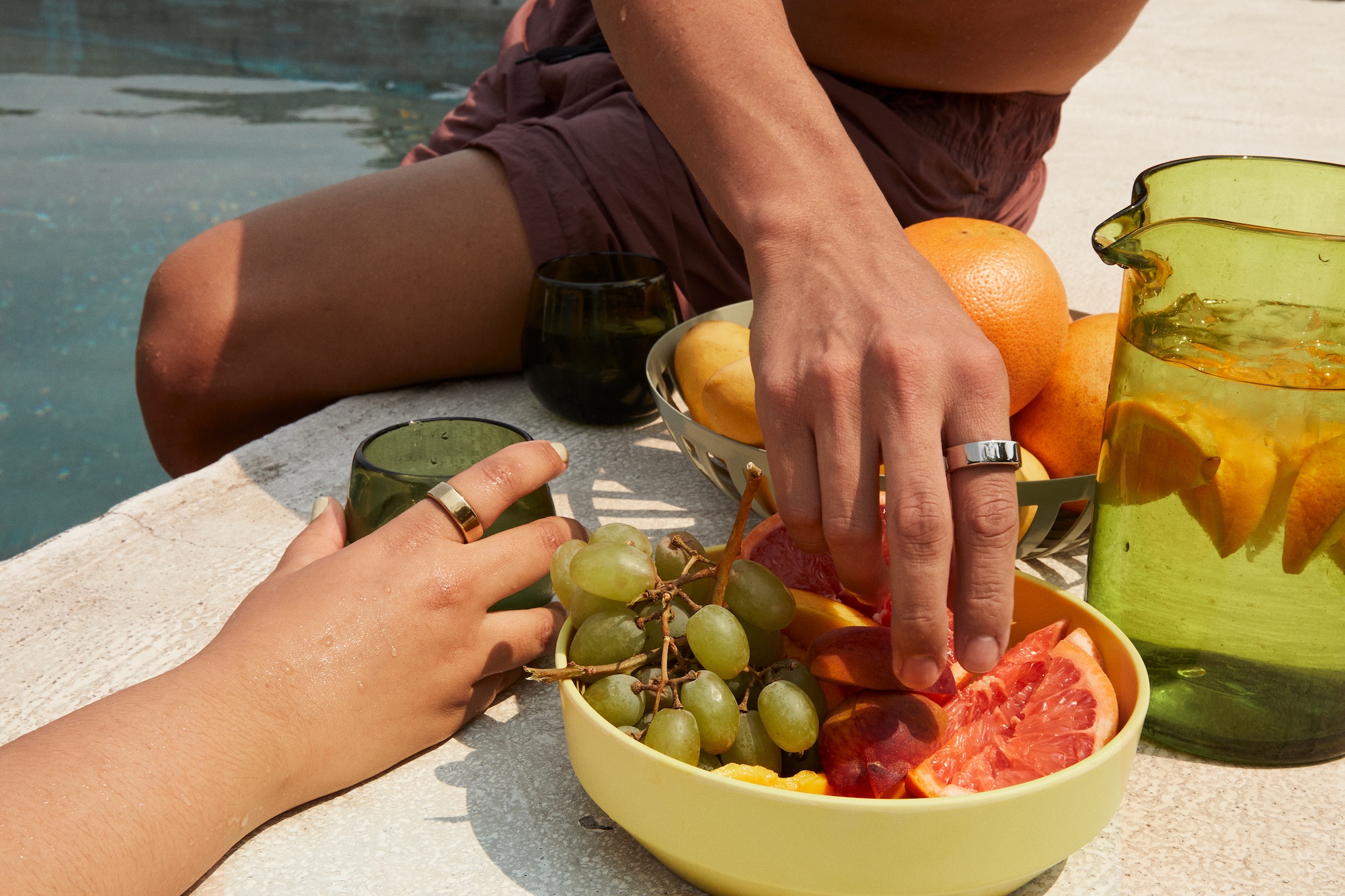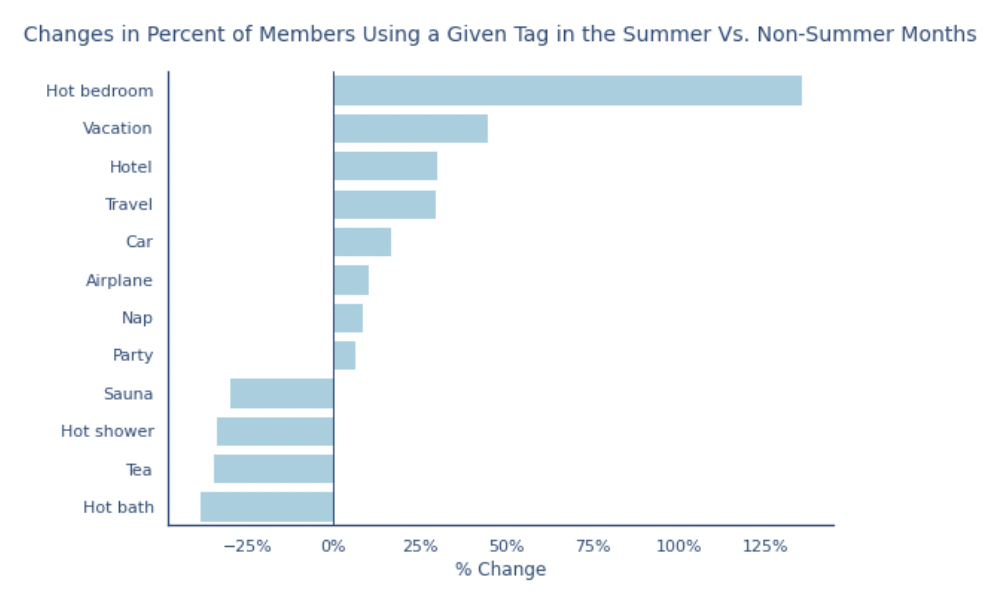The dog days of summer have arrived — but Oura members aren’t letting the heat and humidity slow them down.
In the summer, we see a slight increase in the frequency of activity in the summer, notes Nicolas Beuchat, senior data scientist at Oura, who analyzed this aggregate data. “We also see that people love paddle sports in the summer, as well as a high increase with activities such as golf, yard work, mountain biking, and hiking.”
The data also signals that Oura members also enjoy traveling in the summer months, despite the fact hitting the road does have some detrimental effects on our sleep metrics.
Finally, we see some effects of the summer heat: Oura members use the Hot Bedroom tag more often — far from ideal for a good night’s sleep. “We also observe reduced usage of tags that are related to ‘hot things’ such as sauna and hot baths,” Beuchat adds.
Keep reading to dive deeper into the data.
Water Sports Rise to the Top
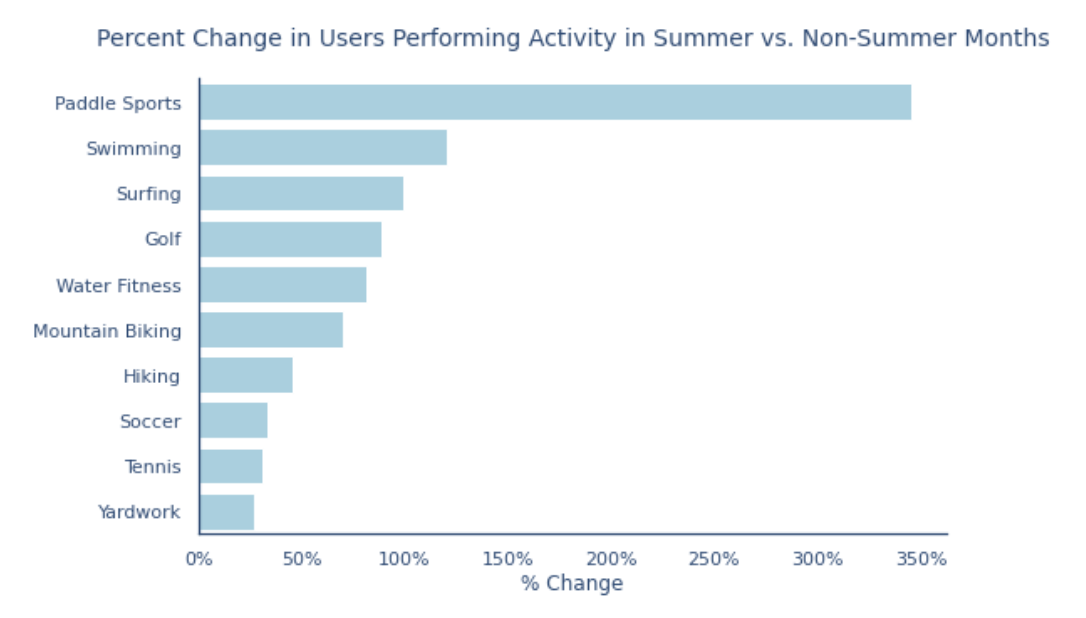
Water-based paddle sports — e.g., canoeing, kayaking, rafting, and stand-up paddle boarding — emerged as the activities with the highest change in frequency between summer and non-summer months, followed by swimming and surfing.
With the spike in popularity of swimming during the summer, we were curious how the sport impacts members’ health and fitness.
According to Oura’s science team, swimming is one of three activities with the strongest effects on resting heart rate and heart-rate variability (HRV) when Oura members introduce the activity to their routine — alongside running and HIIT.
Additional research found that people who swim once a week more than others have an HRV of almost 3 milliseconds higher. (Note that correlation does not imply causation.)
RELATED: How to Increase Your HRV
As a general rule, a higher HRV (relative to your baseline) in the long-term is associated with general physical fitness and good recovery. Plus, higher average nighttime HRV measurements have also been linked to better sleep quality and vice-versa. In contrast, a low resting heart rate over the long-term is generally a sign of better cardiovascular health, physical fitness, and recovery.
As summer winds down, take this as a sign to seek out a pool or lake on the next sunny day and take a few laps. Not a swimmer? Similar effects on HRV and heart rate as the above were observed for running, HIIT, strength training, and cycling as well.
Beating the Heat
The Oura tag with by far the largest increase during the summer months is the Hot Bedroom tag. A warm sleeping environment is unfortunately not ideal for getting good sleep; in fact, the ideal sleeping temperature is around 65 degrees Fahrenheit (18 degrees Celsius).
The reason: Your body temperature naturally decreases to release melatonin and initiate sleep, so cooling your room can give your body a head start. If air conditioning is out of the question, try using a portable fan or cooling device, which delivers the added benefit of providing a whirring white noise in the background.
During the summer months, tags related to typically cold-weather activities, like using a sauna, taking a hot bath or shower, and drinking tea, have a much lower fraction of users tagging them. But don’t disregard these practices so fast! While it may seem counterintuitive, taking a hot bath or shower before bed can actually help you fall asleep faster, improve sleep quality, and improve sleep efficiency.
RELATED: 5 Ways to Improve Your Sleep Hygiene
Hitting the Road
The dataset above also showed that many Oura members enjoy travel in the summer months. Landing right below the Hot Bedroom tag are travel-related tags: Vacation, Hotel, Travel, Car, and Airplane.
There is a downside to hitting the road, however: The transportation-related tags and Hotel tended to have detrimental effects on members’ HRV, resting heart rates, and Sleep Scores.
No need to call off your well-deserved trip, though — a relaxing vacation can help these metrics recover. “Vacation is less one-sided, as we have quite a few people with significant effect in one direction and many people with significant effect in the other,” Beuchat notes.
RELATED: 7 Science-Backed Strategies to Manage Jet Lag
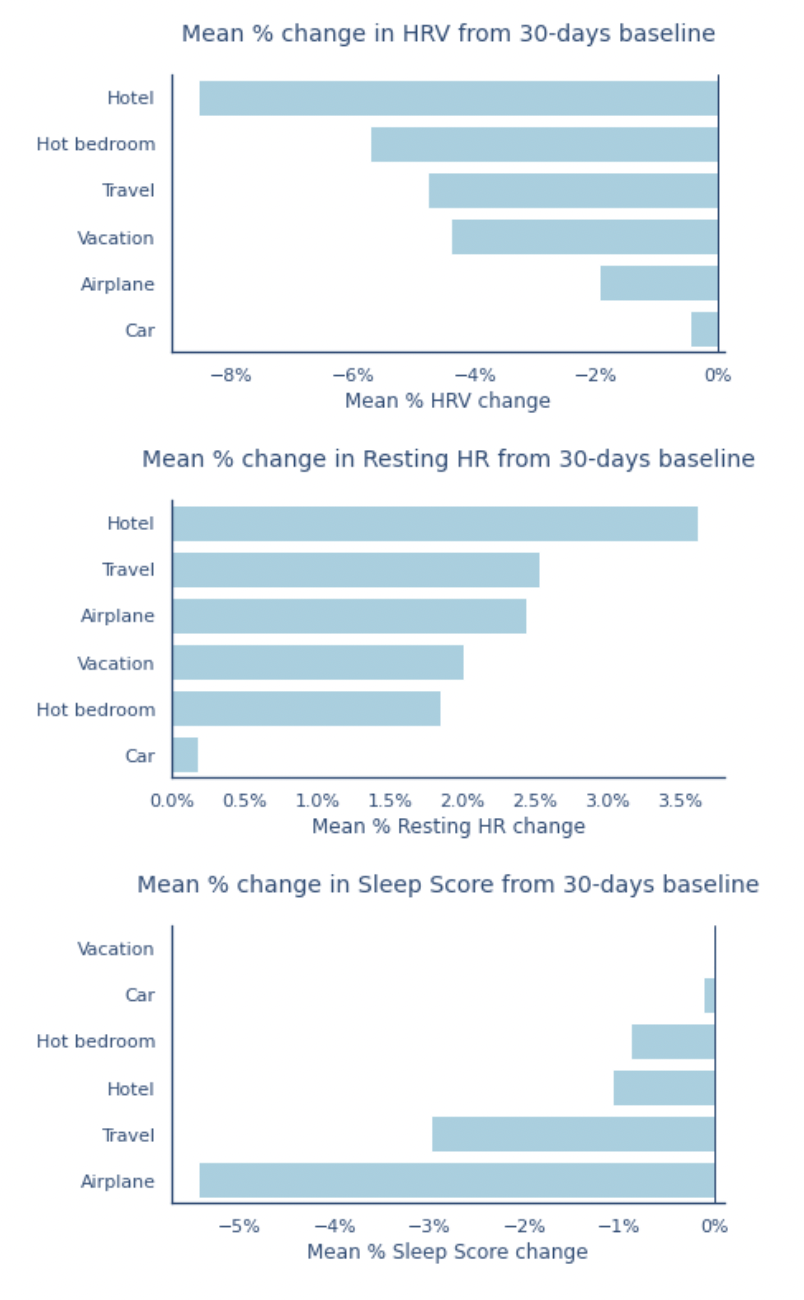
About the Oura Expert
Nicolas Beuchat is a Senior Data Scientist at Oura. He is from Lausanne, Switzerland. He has a background in bioengineering and bioinformatics from EPFL and Harvard Medical School where he studied motor adaptation and motor learning. Prior to joining Oura, Nicolas worked in a wide range of industries, from financial institutions, logistics, and most recently as a co-founder of a real estate tech startup.
* For these analyses, Oura’s science team looked at member data from summer 2022, defined here as June through September. The activities analysis selected activities with high enough participating to draw conclusions, and excluded the “other” category. Data was collected from a selection of northern hemisphere countries around the world, but excluded a number of southern U.S. states that experience less seasonal deviations (Alabama, Arizona, Arkansas, California, Florida, Georgia, Hawaii, Louisiana, Mississippi, Oklahoma, South Carolina, Texas).








